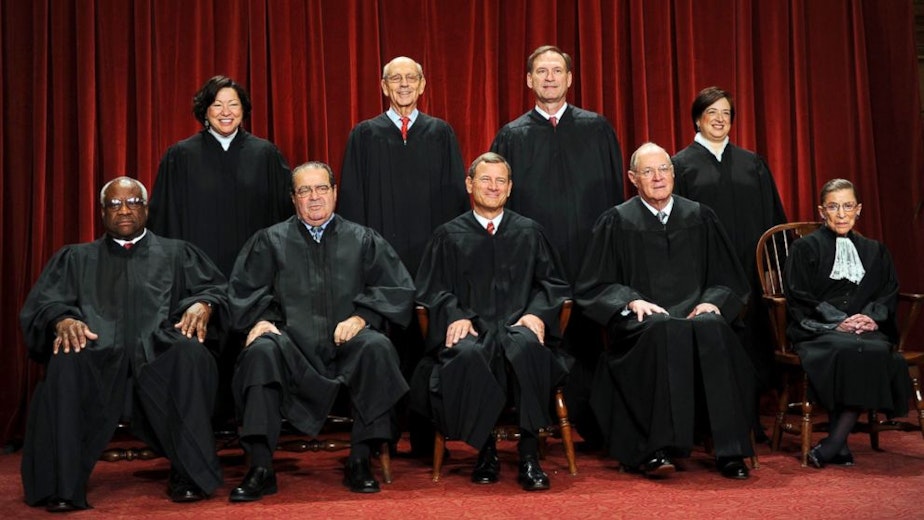Sex And Babies: Why 4 Justices Opposed Gay Marriage

Not everyone was waving the rainbow flag on Friday morning. Certainly not the four dissenting justices who opposed same-sex marriage.
The justices -- John Roberts, Antonin Scalia, Clarence Thomas and Samuel Alito – wrote four separate dissents, which is unusual for the high court. They took different approaches but ended up in the same place: the belief that marriage is between a man and a woman, because those give way to babies.
In his dissent, Chief Justice Roberts started off noting the role of the court.
“Whether same-sex marriage is a good idea should be of no concern to us,” Roberts said.
“Under the Constitution, judges have power to say what the law is, not what it should be.”
He said that his dissent was not about whether he believes gay couples should be allowed to get married – but about process.
But he appeared to show his hand when he quoted Noah Webster’s first dictionary, which defined marriage “as the legal union of a man and woman for life.” Some more passages from his dissent that highlight this view:
“The human race must procreate to survive. Procreation occurs through sexual relations between a man and a woman.”
“When sexual relations result in the conception of a child, that child’s prospects are generally better if the mother and father stay together rather than going their separate ways.”
“For the good of children and society, sexual relations that can lead to procreation should occur only between a man and a woman committed to a lasting bond.”
And then this passage, about giving benefits to heterosexual couples because they can, in theory, have kids:
“By bestowing a respected status and material benefits on married couples, society encourages men and women to conduct sexual relations within marriage rather than without.”
Alito echoed Roberts’ conservative family values, writing:
“If this traditional understanding of the purpose of marriage does not ring true to our ears today, that is probably because the tie between marriage and procreation has frayed. Today, for instance, more than 40 percent of all children in this country are born to unmarried women.”
Thomas quoted philosopher John Locke: “As Locke had explained many years earlier, 'The first society was between man and wife, which gave beginning to that between parents and children.'”
Scalia’s dissent was more of a slam on the majority opinion.
“If … I ever joined an opinion for the Court that began: ‘The Constitution promises liberty to all within its reach, a liberty that includes certain specific rights that allow persons, within a lawful realm, to define and express their identity,’ I would hide my head in a bag,” he wrote.

